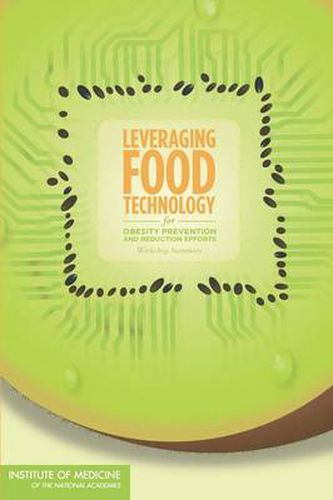Readings Newsletter
Become a Readings Member to make your shopping experience even easier.
Sign in or sign up for free!
You’re not far away from qualifying for FREE standard shipping within Australia
You’ve qualified for FREE standard shipping within Australia
The cart is loading…






Obesity is a major public health challenge. More than one-third of the U.S. adult population is considered obese, a figure that has more than doubled since the mid-1970s. Among children, obesity rates have more than tripled over the same period. Not only is obesity associated with numerous medical complications, but it incurs significant economic cost. At its simplest, obesity is a result of an energy imbalance, with obese (and overweight) people consuming more energy (calories) than they are expending. During the last 10-20 years, behavioral scientists have made significant progress toward building an evidence base for understanding what drives energy imbalance in overweight and obese individuals. Meanwhile, food scientists have been tapping into this growing evidence base to improve existing technologies and create new technologies that can be applied to alter the food supply in ways that reduce the obesity burden on the American population. Leveraging food technology for obesity prevention and reduction effort examines the complexity of human eating behavior and explores ways in which the food industry can continue to leverage modern food processing technologies to influence energy intake. The report also examines the opportunities and challenges of altering the food supply–both at home and outside the home–and outlines lessons learned, best practices, and next steps. –Publisher’s description.
$9.00 standard shipping within Australia
FREE standard shipping within Australia for orders over $100.00
Express & International shipping calculated at checkout
Obesity is a major public health challenge. More than one-third of the U.S. adult population is considered obese, a figure that has more than doubled since the mid-1970s. Among children, obesity rates have more than tripled over the same period. Not only is obesity associated with numerous medical complications, but it incurs significant economic cost. At its simplest, obesity is a result of an energy imbalance, with obese (and overweight) people consuming more energy (calories) than they are expending. During the last 10-20 years, behavioral scientists have made significant progress toward building an evidence base for understanding what drives energy imbalance in overweight and obese individuals. Meanwhile, food scientists have been tapping into this growing evidence base to improve existing technologies and create new technologies that can be applied to alter the food supply in ways that reduce the obesity burden on the American population. Leveraging food technology for obesity prevention and reduction effort examines the complexity of human eating behavior and explores ways in which the food industry can continue to leverage modern food processing technologies to influence energy intake. The report also examines the opportunities and challenges of altering the food supply–both at home and outside the home–and outlines lessons learned, best practices, and next steps. –Publisher’s description.